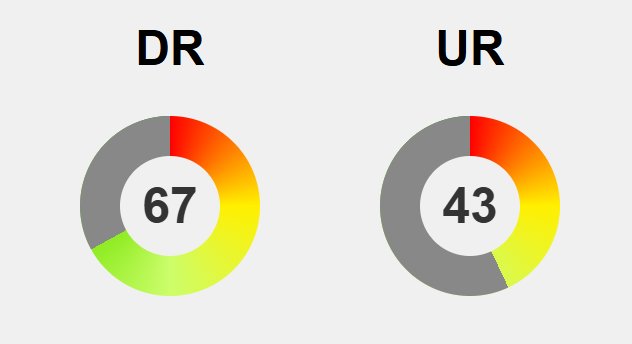Confucius’s teachings have transcended millennia, shaping notions of ethics, leadership, and societal harmony amid chaos and upheaval. But can ancient virtues like benevolence, respect, and integrity remain relevant in today’s complex, interconnected world? This exploration reveals how his philosophy, rooted in returning to core moral values during China’s turbulent Spring and Autumn period, offers timeless guidance for building trust and moral clarity. Through small acts of kindness, sincerity, and reverence—applied daily—individuals and leaders can foster communities rooted in mutual respect and fairness. Yet, amidst modern challenges of hierarchy and inequality, how can these principles be adapted without losing their essence? By examining Confucius’s emphasis on education and moral cultivation, we discover a blueprint not only for personal growth but also for creating inclusive, cohesive societies. His enduring legacy prompts us to consider: can ancient wisdom still light the way toward harmony in an ever-evolving world?
Confucius’s Teachings: A Timeless Blueprint for Ethics and Social Harmony
Confucius’s teachings have left a profound and lasting impact on how societies think about ethics, leadership, and social harmony. More than two thousand years after his time, his ideas continue to shape our understanding of virtues like respect, integrity, and moral responsibility. His emphasis on education and moral cultivation offers a timeless blueprint for building communities rooted in mutual trust and respect. Recognizing his influence helps us see how ancient wisdom can still guide us through today’s complex social landscape.
Confucius lived during the Spring and Autumn period, a time marked by chaos, political fragmentation, and social upheaval in China. Witnessing this turmoil, he responded by promoting virtues such as benevolence, righteousness, and filial piety—values aimed at restoring moral stability. His teachings emerged as a reaction to the decline of traditional customs, offering a moral framework centered on character and social responsibility rather than ritual formalities alone.
At the core of his philosophy lies the belief that individuals can cultivate inner virtues like honesty, kindness, and respect, which in turn foster social harmony. Unlike some of his contemporaries who prioritized elaborate rituals, Confucius emphasized moral sincerity and integrity. His focus was on acting with genuine virtue in everyday life—values that could inspire moral role models and reinforce social cohesion across generations.
Throughout history, Confucian thought has been carefully preserved and adapted. His disciples compiled his sayings into texts like the Analects, forming the foundation of Confucianism. Over the centuries, scholars expanded on his ideas, ensuring they remained relevant through shifting eras. His influence permeated Chinese education, governance, and social norms, shaping leadership practices and societal expectations that continue to resonate today.
Reflecting on Confucius’s enduring legacy reveals how his emphasis on virtue, respect, and moral clarity remains vital. His teachings remind us that building respectful, cohesive communities begins with individual effort and moral integrity. Even in an age of rapid change, these principles offer guidance for creating societies rooted in trust, fairness, and mutual regard, making his ancient wisdom remarkably relevant now more than ever.
Roots of Confucian Thought: Foundations in Ancient China’s Turbulent Era
Confucian thought has its roots deeply embedded in the rich cultural and historical landscape of ancient China, emerging during the turbulent Spring and Autumn period. This era was characterized by political fragmentation, frequent warfare, and a decline in traditional values, creating widespread social instability. Witnessing this chaos firsthand, Confucius sought ways to restore social harmony through a focus on ethics and proper conduct. His early exposure to Zhou dynasty rituals and the teachings of past sages provided a solid foundation, but he aimed to go beyond mere ritualism to emphasize genuine virtues capable of transforming both individuals and society.
At the heart of Confucian philosophy lies the importance of virtue and proper relationships. Confucius believed that society’s stability depended on individuals cultivating qualities like benevolence, righteousness, and filial piety. These virtues were seen as the keys to social harmony, with personal morality serving as the backbone of a well-ordered community. Unlike some contemporaries who emphasized elaborate ceremonies, Confucius prioritized sincerity and moral integrity, advocating actions rooted in genuine virtue rather than superficial rituals. His teachings encouraged people to become morally upright role models whose behavior could inspire others and reinforce social cohesion.
The disintegration of Zhou authority and the erosion of traditional rituals created a moral vacuum in society. Confucius responded by emphasizing the need to return to core values centered on morality, respect for elders, and social hierarchy. Rulers and officials were urged to lead by example, demonstrating virtue to their subjects. Moving away from ritual formalities, Confucius focused on moral character as the foundation of social order. This revolutionary shift laid the groundwork for ethical leadership and societal stability that continues to influence Chinese thought to this day.
Confucius also drew inspiration from earlier Chinese philosophies that emphasized rites, ancestral worship, and moral virtues. He believed that restoring respect for elders and reinforcing social hierarchies could foster moral development across society. Ideas such as filial piety and loyalty reflected traditional cultural ideals designed to strengthen social bonds. His vision was of a harmonious society where individuals act with integrity, respect, and kindness, ensuring stability through moral cultivation rather than rigid rules alone.
After Confucius’s death, his teachings were preserved and expanded by his disciples. The collection of his sayings in the Analects became a central text for Confucian thought. Over the centuries, scholars like Mencius and Xunzi interpreted and refined his ideas, ensuring their relevance through different eras. Confucianism was gradually integrated into the Chinese education system, civil service exams, and government policies, transforming personal virtues into a comprehensive ethical framework. This enduring legacy continues to shape not only Chinese society but also broader East Asian cultures, emphasizing the timeless importance of virtue and social responsibility.
Understanding the roots of Confucian philosophy reveals how deeply it was shaped by historical circumstances and cultural ideals. These foundations set the stage for his later ideas on applying virtue and respect in daily life. Recognizing this history helps us appreciate how his teachings evolved to meet the needs of different eras, maintaining their relevance today. From the chaos of his time to the enduring influence on modern leadership, Confucius’s emphasis on moral clarity and proper relationships remains a guiding principle for creating respectful, harmonious communities.
Modern Relevance: Applying Confucian Ethics to Today’s Social and Political Challenges
Confucius’s teachings continue to resonate strongly in today’s social and political spheres. His emphasis on respect, moral responsibility, and integrity offers a solid foundation for ethical leadership and the cultivation of cohesive communities. Modern leaders who embrace these virtues often foster trust and transparency, creating environments where honesty and fairness guide decision-making. Whether in government, business, or local settings, applying Confucian values encourages respectful dialogue, accountability, and mutual understanding—elements essential for navigating our interconnected world.
In everyday life, these principles promote social cohesion. Practicing filial piety, for example, extends beyond family bonds to include respect for elders and authority figures, fostering a sense of mutual obligation. When individuals lead with sincerity and kindness, they help build environments rooted in trust and cooperation. Such virtues can help reduce conflicts and strengthen social bonds, aligning well with contemporary ideas of responsible citizenship and moral integrity.
Some critics worry that Confucian principles might reinforce hierarchy or be too rigid for modern values of equality and individual rights. Respect for authority and filial piety, if misused, could potentially suppress dissent or justify social inequalities. The key lies in adapting these teachings thoughtfully—upholding their core virtues while promoting inclusivity and fairness. Many thinkers see Confucian ethics not as strict rules but as flexible guides that support moral growth and social harmony.
Revisiting Confucius’s ideas can also shed light on contemporary challenges. His focus on moral integrity and social responsibility offers a moral compass for reforming leadership practices and fostering responsible governance. Emphasizing virtues like benevolence and respect can help bridge divides and promote shared purpose within diverse communities. These timeless principles serve as tools for navigating conflicts and embracing differences, guiding us toward more respectful and cohesive societies.
Practicing Confucian virtues doesn’t require perfection. Small, deliberate acts—such as listening attentively, showing genuine concern, or offering sincere help—can create ripples that strengthen social bonds. Leading by example, especially in roles of influence, amplifies these virtues and encourages others to follow. Over time, consistent efforts to embody respect, honesty, and kindness can gradually transform social norms into a culture of integrity and mutual regard.
Living according to Confucian principles involves balancing tradition with modern realities. Respect for elders or authority should never override personal boundaries or individual rights. Finding this balance requires ongoing reflection and adaptation, ensuring these virtues support inclusivity and fairness. When applied thoughtfully, Confucian values can serve as moral anchors that guide us through complex social issues without becoming outdated or restrictive.
Ultimately, integrating Confucian ethics into daily life and leadership enriches our moral fabric. Small acts of virtue—listening carefully, showing gratitude, acting with honesty—can inspire others and foster a culture of trust. These efforts, sustained over time, help create communities where respect and fairness thrive. By living intentionally and embodying these virtues, we contribute to more harmonious societies rooted in moral clarity and mutual respect.
Embracing these values in practical ways can also influence broader societal change. For those interested in exploring how traditional virtues translate into modern contexts, learning more about their application can be enlightening. You can find further insights into Confucian-inspired leadership and ethics at Confucian Ethics in Modern Society.
Practical Paths: Strategies for Integrating Confucian Principles into Daily Life
Applying Confucian principles in daily life begins with small, intentional actions rooted in respect, honesty, and kindness. Showing filial piety by attending to family needs, expressing gratitude, and honoring elders helps reinforce these virtues at home. These simple acts build a foundation for moral consistency and set a positive example for others around you. When practiced regularly, they create a ripple effect that encourages those in your community to act with similar integrity and care.
In the workplace or community, demonstrating integrity—being honest, reliable, and fair—fosters trust and establishes a moral standard others are likely to follow. Acting with sincerity and showing genuine concern for those around you helps create an environment of mutual respect and understanding. Such behaviors nurture cooperation and reduce conflicts, making social interactions smoother and more harmonious. Leading by example in these ways inspires others to embrace similar virtues, strengthening the moral fabric of the collective.
Cultivating virtues like benevolence involves offering help without expecting anything in return or listening empathetically to someone in need. Small gestures, such as volunteering for community projects or sincerely complimenting others, can spark a wave of kindness. Respectful communication—speaking thoughtfully and listening actively—further deepens relationships and builds trust. These everyday acts of virtue are the practical tools that embed Confucian ideals into our daily routines, gradually shifting social norms toward greater fairness and compassion.
Living by Confucian principles doesn’t mean striving for perfection but making steady, deliberate efforts to improve. Setting personal intentions to act ethically each day—whether by pausing before responding or offering a genuine apology—helps develop consistent moral habits. Over time, these small but meaningful actions cultivate a culture of virtue that benefits everyone. When leaders and individuals alike commit to these daily practices, they create a shared moral environment rooted in trust and respect.
Balancing tradition with modern realities is essential for meaningful application. Respecting elders or authority should never override personal boundaries or individual rights. Finding ways to honor core virtues while respecting contemporary values requires ongoing reflection and adaptation. When Confucian virtues are practiced thoughtfully, they serve as moral anchors that support inclusivity and fairness, helping us navigate complex social issues without losing sight of their timeless relevance.
Looking Forward: Reflecting on Confucius’s Legacy and Embracing Future Ethical Journeys
Confucius’s teachings remind us that virtues like respect, honesty, and moral integrity are timeless foundations for building harmonious societies. His emphasis on education and self-cultivation shows that moral growth begins with each individual’s commitment to virtue. These core principles continue to guide modern leadership and everyday interactions, inspiring us to act with kindness, fairness, and responsibility. By embodying these values, we contribute to a culture rooted in trust and mutual respect, essential for social cohesion in a rapidly changing world.
Reflecting on Confucius’s wisdom reveals that ongoing engagement with his ideas can deepen our understanding of what it truly means to live morally. Small acts—listening carefully, offering sincere help, expressing gratitude—create ripples that strengthen social bonds and foster a sense of community. Each deliberate choice to act with integrity reinforces the fabric of trust that holds societies together. These timeless virtues aren’t just ideals; they are practical tools that, when practiced daily, shape a more respectful and compassionate world.
Looking ahead, integrating Confucian values into contemporary life offers promising pathways to address societal challenges. Whether in leadership, education, or community spheres, embracing virtues like benevolence and respect can foster environments of trust and cooperation. As societies become more diverse and interconnected, these principles serve as moral anchors, guiding us through conflicts and differences with patience and understanding. Their relevance endures because they speak to the fundamental human needs for dignity, fairness, and connection.
The journey of moral development is continuous. Every act of kindness, every moment of patience, builds toward a collective culture of harmony. Living intentionally with these virtues, even in small ways, contributes to a ripple effect that can transform social norms over time. This ongoing effort requires reflection, humility, and a willingness to learn from others. By committing to this path, we help ensure that Confucian virtues remain vibrant, guiding us toward more balanced and respectful communities for generations to come.
Finally, embracing Confucian principles isn’t about perfection but progress. It’s about making daily choices that reflect our deepest values and inspire others to do the same. When respect, honesty, and kindness become part of our routines, they become the building blocks of a more just and peaceful society. These virtues, rooted in ancient wisdom, continue to light the way, reminding us that moral clarity and mutual regard are keys to creating a harmonious future in an ever-evolving world.




